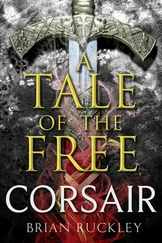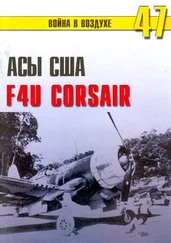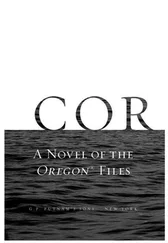For a moment Hector thought he had broken through Chabrillan’s calm detachment. The Chevalier moved a hand as if to touch the scatter of blue specks on his cheek, but then changed his mind.
‘I shared an oar bench with a man with exactly that colour of mark on his cheek,’ Hector added. ‘He is marked with the letters GAL for galerien. He had told me that when the brand was first scorched into his flesh, it was made permanent by rubbing gunpowder in the fresh burn.’
‘You seem to have an abundance of low-life friends,’ Chabrillan remarked witheringly.
‘Someone else said that to me recently,’ Hector acknowledged, but then moved on. ‘It was not until I learned that tisonne is a word for a horse with a spotted skin that I made the connection. My guess is that Hakim Reis gave you that cover name, and that you enjoyed the coincidence that tizon is also the name for a weapon which the heroic El Cid wielded against Muslims.’
‘You have a very vivid imagination,’ said Chabrillan. It was evident that he had regained his composure fully. ‘Why should it matter to you that I am this Tisonne. I am held in this cell because I am a knight of the Order of St Stephen of Tuscany, not because weapons and gunpowder reached Meknes.’
‘I will come to that in a moment,’ Hector answered him. ‘But there is something else which must come first, something more important than arms smuggling.’
‘Please continue.’ Chabrillan’s voice dripped with sarcasm.
‘Hakim Reis has the reputation of a lucky man. He always seems to be at the right place and at the right time. His galley intercepts merchant shipping with uncanny accuracy, and he is first on the scene when a peace treaty breaks down and a Barbary state reverts to piracy. It is as if someone highly placed in the councils of his victims is supplying him with vital information. I believe that informant was you.’
‘And why should I do that?’
‘That is what I did not understand until you told me why you had Karp’s tongue removed: you nurse a violent hatred for those who you see as enemies of your Church, whoever they are, whether Muslims or dissenters. You would damage them in whatever way you can.’
Hector could feel Chabrillan’s arrogance returning. It was like a physical force radiating from the aristocrat, his absolute certainty that his cause was correct, and that his breeding and privilege placed him above others.
‘As a turncoat you would not understand,’ Chabrillan said, his voice contemptuous. ‘Christendom will prevail. But first it must cure itself of the heresies within. That is where the real and present danger lies. Schismatics and agnostics gnaw at the heart of Mother Church. Men like Karp must be rooted out. Nations who would question the authority of Rome must be put to flight. Only then should we turn our full attention to the Eternal War.’
‘And is that why you allied yourself with Hakim Reis?’ Hector spoke quietly. He knew now that Chabrillan’s self-belief was his weakness.
‘Consider where Hakim Reis operates – in the Atlantic, where he encounters ships from the trading nations of the north, from protestant nations. His activities and the attacks of corsairs like him weaken these nations and distract them from rivalry with the Holy Mother Church. The arms and gunpowder he brings to Moulay are used to drive the English from Tangier. A share of the money he receives, from the slaves and cargoes he captures and the arms he provides, goes to good purpose. Through me it has built galleys for La Religion, strengthened fortifications, and holds back the Turk.’
‘Then why did you join the Galley Corps of France?’
Chabrillan gave a cynical smile. ‘Did you not notice how many of the Reformed, as they like to call themselves, sat alongside you on the benches of St Gerassimus ? Increasingly France condemns them to the oar. One day, I predict, King Louis will recognise the Reformed openly for the pestilence they are, and then the galleys of France will join in our crusade, rowed by unbelievers.’
‘What about the innocent victims of your alliance with Hakim?’ Hector asked. This was the moment he had waited for. ‘Eighteen months ago Hakim Reis with two ships raided a small and undefended village on the coast of Ireland. He carried off slaves, both men and women. The villagers were taken by surprise because the authorities believed there was a peace treaty between Barbary and the English king. They did not know that the treaty had been torn up. Yet Hakim knew, and he profited from his knowledge. If Tisonne was his source – and you are Tisonne – then you are responsible for both Catholics and Protestants having been sold into slavery.’
‘I care not for the Catholics of Ireland,’ snapped Chabrillan. ‘They failed us. When Ireland fell to the protestant English, she no longer sent her noblemen to Malta despite the requests of the Grand Master. Yet at home they continued to enjoy the Order’s lands and estates. Your countrymen were too craven.’ He looked at Hector with a sudden flash of understanding. ‘Hakim Reis matters to you because you were taken in that raid?’
‘Yes, I was a victim, along with my sister. She was carried away aboard another ship. I have not seen her since.’
A vindictive smile appeared on Chabrillan’s face. ‘Your sister?’ he said slowly.
‘Yes.’
The Chevalier considered for a short while before he declared, ‘I had not intended to admit that I am Tisonne, but now I shall do so for the satisfaction it gives me when I address a weak renegade. Yes, I did work together with Hakim Reis. I supplied him intelligence and I provided him with weapons and gunpowder sold corruptly by the administrators of the Galley Arsenal and by other venal merchants. In return, whenever Hakim Reis sold prize goods, he paid me a share through the Cohens in Algiers, and in turn they placed credit for me with the Crespinos in Livorno. No one could trace the money, not even the Jews. Sometimes I met with Hakim at an arranged rendezvous at sea when I handed over guns and powder, and he provided me with his captives for me to sell in Valletta or Livorno.’
Chabrillan’s manner was utterly self-assured. It occurred to Hector that the Chevalier was pleased to have an audience to whom he could explain himself.
‘For all his faults, Hakim Reis had scruples. Unlike you he believed sincerely that he should help his fellow Muslims. He would exchange his Christian captives for Muslims which I had taken. Hakim would then set his people free, and many of them went on to serve as crew aboard his ship. The men and women I received, if they were protestant, I sold in Valletta or Livorno, or kept them at the oar. I remember his raid on Ireland and you are right: I had sent him word that the treaty with England was soon to be repudiated. He took advantage, as I had expected. We had agreed to meet at sea afterward – to conduct our usual exchange of prisoners. But our rendezvous was disturbed. A foreign warship appeared and Hakim Reis wisely fled. He made for safe harbour. There he sold his captives – yourself included.’
‘What of the other vessel? When Hakim raided Ireland, he came with two ships. What happened to the second vessel? Where did it go?’ Hector was finding it impossible to keep the tension out of his voice.
‘Some time later Hakim Reis sent me my share of the sale of the prisoners from that vessel. They were women. His colleague had got an excellent price for them. I was delighted by the sum. Your sister was no doubt among the wares.’ He paused, coughed to clear his throat. A spiteful gleam had appeared in his eyes. ‘Do you wish to know more?’
Hector’s mouth was dry, and though he already knew the answer, he murmured, ‘Of course.’
‘Your sister and the other women from the Irish raid were landed in Sallee. If she was young and desirable, she would have been sold into Moulay’s harem.’ Chabrillan dropped his voice and spoke slowly and distinctly, relishing every word as he added, ‘The thought that your sister is likely confined not so far from this cell is my consolation for the harm that you have done me. You would do well to reflect that once Moulay breeds on a woman, he casts her off like a used brood mare.’
Читать дальше








